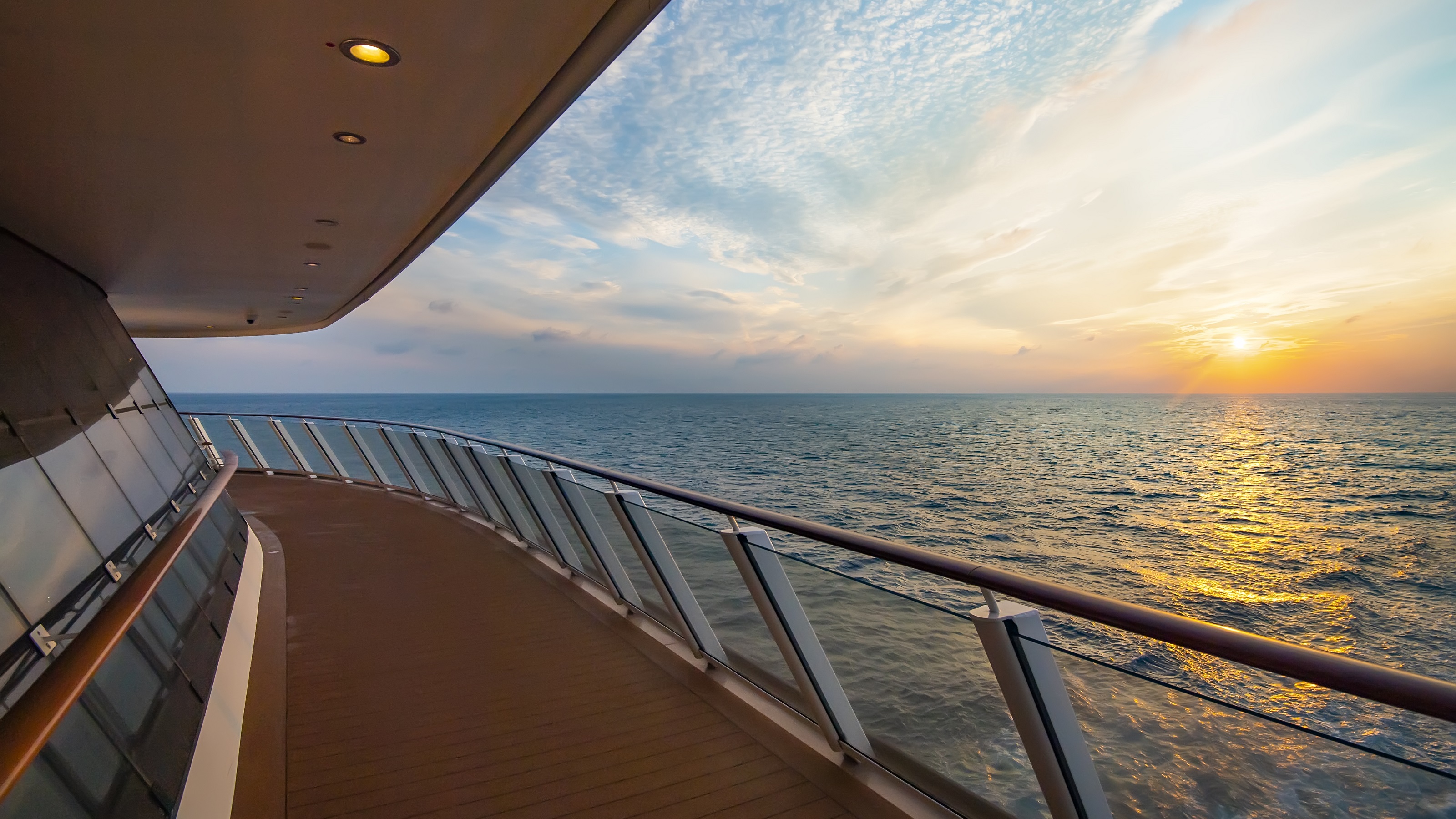
If you have enjoyed taking cruises and are at or approaching retirement age, chances are you’ve seriously considered the possibility of living on a cruise ship instead of moving to a retirement community.
That is exactly what New York attorney and author Peter Antonucci and his wife, Tami, did in 2014, purchasing a $1.6 million apartment on The World, a residential cruise ship, and spending six years traveling the world in the company of some of the wealthiest people on the planet. He has written several bestsellers inspired by his years at sea. His most recent novel is Tides of Betrayal.
I asked Antonucci to share some advice for anyone curious about buying into a residential ship. He listed a number of important factors to consider:
1. How old is the ship?
Many 20- to 30-year-old cargo vessels are being reconfigured as residential ships. With boats and airplanes, the thing you always ask about is engine hours, similar to miles on a car. Safety and a ship’s age are inextricably related, no matter how good the maintenance is.
2. Conduct in-depth due diligence.
The average person who is not using attorneys or accountants is often unable to perform adequate due diligence on a ship and be comfortable. “If I am going to spend $400,000 for an apartment on a ship,” Antonucci says, “I want to know if it is a viable investment. You wouldn’t buy a house without an inspector!”
Also, the financials often do not include such things as fuel costs and port fees — which can exceed $40,000 a night. “So, if they don’t have or fail to disclose operational expenses, including port charges, how much of any one destination will you be able to actually visit and get to know?” he asks.
It is important to understand that, unlike residential ships, virtually all cruise ships must spend as much time as possible at sea. There are rules about not opening the shops when docked, the sale of alcohol, gambling — they have to be at sea. That is where they make their money. “This explains why the typical cruise yields little cultural enrichment, because so few hours are spent at any one port, as contrasted with several days for a residential ship,” Antonucci notes.
3. The boredom factor.
If your ship makes a repeat circuit — the Caribbean, Greek Islands, Western European countries — how many times do you want to repeatedly visit the same places?
4. Available medical services.
The ship must have a doctor who is either a GP or certified in emergency medicine.
5. What level of quality can you afford? A Holiday Inn or a Ritz-Carlton?
“You are not going to get Ritz-Carlton service and attention to detail at Holiday Inn prices,” Antonucci points out, “so that is a huge consideration when you’re looking to purchase an apartment on a ship.”
Antonucci also shares a major plus and a major minus of living on a cruise ship.
Plus: The more you travel, the more enlightened you become.
Becoming immersed in other cultures is life-enriching and leads to more intelligent, respectful conversations about other religions, lifestyles, expanding one’s horizons, discovering that people basically aren’t all that different.
Minus: You are not going to be there when and if:
- Something serious happens to a family member.
- There are weddings and graduations, unless you plan ahead and have the means to fly back and forth.
- You are going to miss your friends. Yes, there is Skype and Zoom, but unless these are offered free or at a greatly reduced cost, internet charges are prohibitive and often slow.
Who is not well-suited to reside on a ship?
A residential ship is a small community floating around in a steel can! “It gets to be gossipy, petty, like the cliques in high school,” Antonucci says. “To some extent, it is like being in a fraternity or sorority where you need to get along with most people.”
A residential ship might be compared to a condo — but a ship is small, and when you walk out of your apartment, you are limited by where you can go. There is no hopping in the car and taking a road trip or going to Costco.
Also, Antonucci underscores, “Someone who is unadaptable is not well-suited to life on a ship, as a lot happens beyond their control, such as the weather. Certain ports at the last minute are difficult or impossible to enter. If you can’t deal with change, you’ll have a problem.”
A person with a chronic health issue can wind up in deep trouble if they need more medical help than is available on the ship.
Who is well-suited for life on a ship?
A person in good health, with a great sense of adventure, is ideal, Antonucci says: “Someone curious about the world who can let things roll when they are in a less than ideal situation in terms of weather and people.”
Antonucci concluded our interview with this caveat: “Living on a ship can take a real toll on your terrestrial friendships and relationships.”
Tides of Betrayal makes you a fly on the wall of the people living on a fictional residential ship. You get to know them. I’ll bet that no jurors ever fell asleep at any trial in which it was “Peter Antonucci for the defense.”
Dennis Beaver practices law in Bakersfield, Calif., and welcomes comments and questions from readers, which may be faxed to (661) 323-7993, or e-mailed to Lagombeaver1@gmail.com. And be sure to visit dennisbeaver.com.







